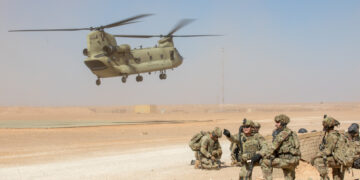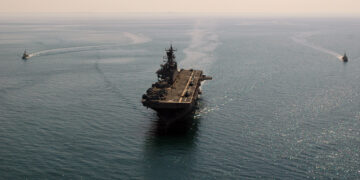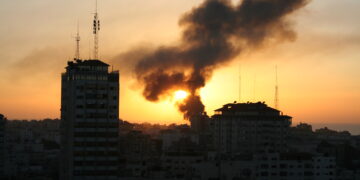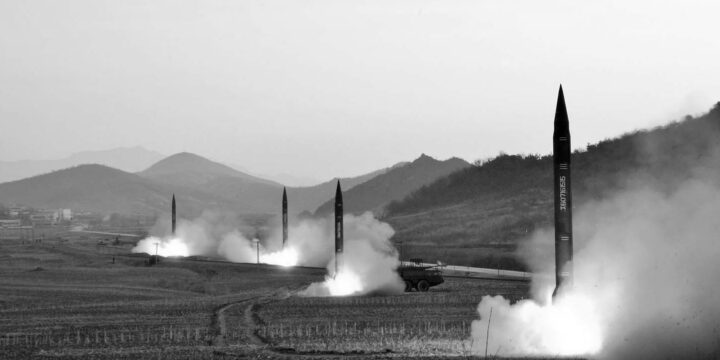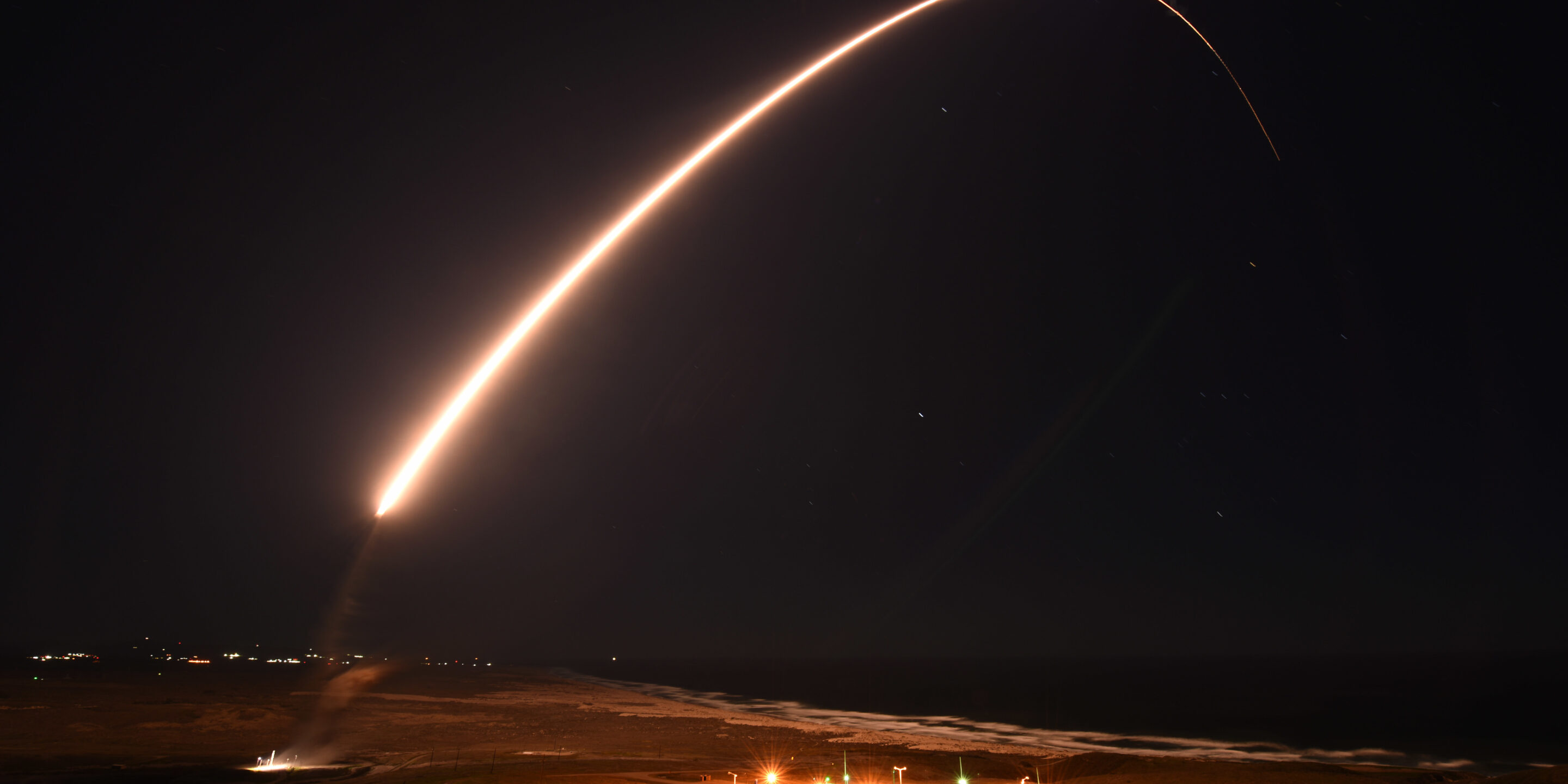
Where we are: U.S.-Iran relations and prospects for the JCPOA
- U.S.-Iran nuclear diplomacy is on the brink of collapse. A year after President Trump withdrew from the JCPOA, Iran restarted and advanced its nuclear program, accumulating 2,442.9 kg of enriched uranium, more than 12 times the amount permitted under the deal and installing more sophisticated centrifuges.1“Verification and Monitoring in the Islamic Republic of Iran in Light of United Nations Security Council Resolution 2231 (2015),” IAEA, November 11, 2020, https://www.iaea.org/sites/default/files/20/11/gov2020-51.pdf.
- Despite re-engaging with Tehran diplomatically, no U.S.-Iran agreement to resume compliance with the deal has occurred. President Biden instead continues his predecessor’s approach, sanctioning the Iranian economy in the hope more financial pressure will force it to resume compliance with the deal despite U.S. sanctions that violate it.
- U.S. secondary sanctions on potential purchasers of Iranian exports reduced Iran’s oil exports by more than 70 percent between 2018 and 2020, but Iran refused to soften its position.2“Crude Oil Exports for Iran, Islamic Republic of,” Federal Reserve Economic Data, https://fred.stlouisfed.org/series/IRNNXGOCMBD.
- If President Biden continues President Trump’s maximum pressure strategy, he will likely destroy the JCPOA, and Iran will move toward a bomb. This predictable failure, however, would not justify preventive military strikes that could result in U.S.-Iran war.
Current state of the talks
- The U.S. and Iran agreed to begin indirect talks in April 2021, aiming to pair U.S. sanctions relief with a roll back of Iran’s nuclear advances. This simple formula, if followed, seemed likely to salvage the JCPOA.
- A draft agreement was reportedly reached in March 2022. Yet talks are deadlocked over several issues, including the scope of U.S. sanctions relief, pending IAEA investigations of Tehran’s past nuclear work, the IAEA’s monitoring powers, and especially the Biden administration’s refusal to reverse President Trump listing of the Iranian Revolutionary Guard Corps as a terrorist organization.
- A late June 2022 session made no progress, and U.S. envoy to Iran Robert Malley called it a “wasted occasion,” faulting Tehran for tabling additional demands outside the scope of the JCPOA and lacking urgency. U.S. and Iranian delegations are currently trying to resolve the remaining sticking points in Vienna.3Robert Malley, “U.S. and Iranian Delegations Fail to Reach a Deal to Restore the Iran Nuclear Deal,” NPR, July 5, 2022, https://www.npr.org/2022/07/05/1109779539/u-s-and-iranian-delegations-fail-to-reach-a-deal-to-restore-the-iran-nuclear-dea.
- During his July trip to the Middle East, President Biden said Tehran needed to come to a decision on resuming compliance with the JCPOA and reiterated that Iran will not be allowed to acquire a nuclear weapon—a threat to use military strikes if negotiations fail.
- In a seeming effort to gain leverage in talks and win U.S. sanctions relief, Tehran began enriching uranium to 60% in April 2021, a short technical step from weapons-grade fuel.4Jon Gambrell, “Iran Starts Enriching Uranium to 60%, Its Highest Level Ever,” AP News, April 17, 2022, https://apnews.com/article/iran-uranium-enrichment-60-percent-ed89e322595004fddc65fd4e31c1131b.
- As of May 2022, Iran’s total stockpile of enriched uranium is 3,809.3 kg, a 55% increase during President Biden’s term.5“Verification and Monitoring in the Islamic Republic of Iran in Light of United Nations Security Council Resolution 2231 (2015),” IAEA, May 30, 2022, https://www.iaea.org/sites/default/files/22/06/gov2022-24.pdf. In June 2022, Tehran removed 27 IAEA cameras from its nuclear facilities, hampering the agency’s monitoring capability.
- The U.S. intelligence community estimates that Iran’s “breakout time,” the time needed to acquire enough weapons-grade fuel for a single nuclear bomb, shrunk from one year to a few weeks.6Karen DeYoung, “Iran nuclear talks to reconvene this week,” Washington Post, June 27, 2022, https://www.washingtonpost.com/national-security/2022/06/27/iran-nuclear-talks-resume/.
The limited utility of an Iranian bomb
- In July 2022, CIA Director William Burns stated Iran has not decided to weaponize its nuclear program.7Ken Dilanian, “Putin Think He’ll Break America’s Will in Ukraine, But He’s Wrong, Says the CIA Director,” NBC News, July 20, 2022, https://www.nbcnews.com/politics/national-security/putin-thinks-break-americas-will-ukraine-wrong-says-cia-director-rcna39241. The U.S. intelligence community’s worldwide threat assessment seconded this, meaning it’s not clear Iran will build a nuclear weapon.8“2022 Annual Threat Assessment of the U.S. Intelligence Community,” U.S. Office of the Director of National Intelligence, March 8, 2022, https://www.dni.gov/index.php/newsroom/reports-publications/reports-publications-2022/item/2279-2022-annual-threat-assessment-of-the-u-s-intelligence-community.
- There are several reasons why Iran may choose to not develop a nuclear bomb. Israel would likely launch a military operation to prevent it9Mike Sweeney, “Considering the Utility of an Iranian Nuclear Bomb,” Defense Priorities, September 16, 2022, https://www.defensepriorities.org/explainers/considering-the-utility-of-an-iranian-nuclear-bomb. and nuclear weapons would probably not help Iran project power (the use of nuclear weapons is not credible in many contingencies such as territorial disputes over contested islands in the Persian Gulf).
- An Iranian nuclear bomb could also spur other powers in the region, including Saudi Arabia, Egypt, and Turkey, to develop their own weapons programs—constricting, rather than strengthening, Iran’s freedom of action.
- That said, U.S. policy, by pulling out of the JCPOA and denying Iran sanctions relief despite its compliance and by attacking non-nuclear states like Iraq and Libya has effectively encouraged Iran to seek nuclear weapons.
Iran’s total enriched uranium stockpile
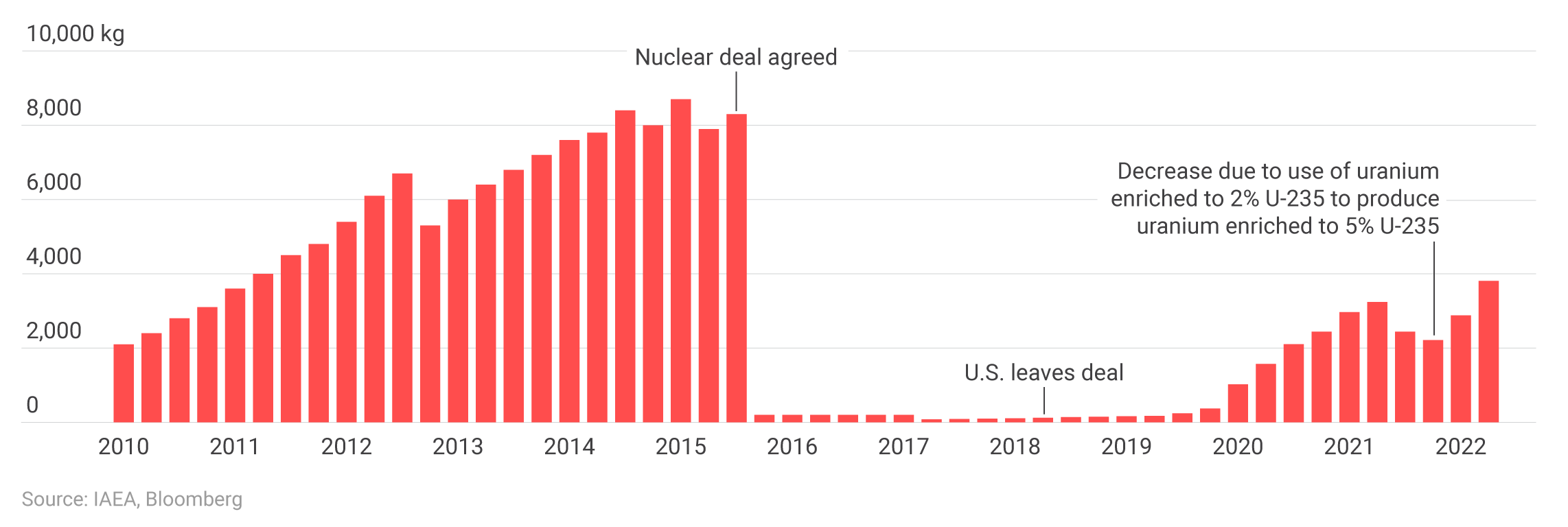
The JCPOA limited Iran’s total enriched uranium stockpile, which Tehran began increasing soon after the U.S. withdrew from the agreement.
Tools available, and options, if current talks collapse
- The best way to lowers the odds of war and restrain Iran’s nuclear activity is to bring the current talks to a successful conclusion.
- This would require President Biden to remove the IRGC’s FTO designation, a politically costly but mostly symbolic concession. The IRGC will remain under other U.S. sanctions authorities. If negotiations stall, there are various means available to deal with Iran.
- Sanctions: More sanctions to strengthen restrictions on Iran’s crude exports to China, Tehran’s biggest customer, and target foreign entities facilitating its oil shipments.10“Treasury Targets Companies Supporting Iranian Petrochemical Conglomerate,” U.S. Department of the Treasury, August 1, 2022, https://home.treasury.gov/news/press-releases/jy0901. It is unlikely additional sanctions would get China to quit buying Iran’s oil, let alone force Iran to capitulate to U.S. demands, but they would escalate U.S.-Iran tensions and increase prospects for conflict.
- Covert operations: The U.S. and Israel could launch cyber-attacks—like the 2010 Stuxnet virus that targeted Natanz, Iran’s major enrichment facility at the time—to undermine Iran’s nuclear program.11William J Broad, John Markoff, David E. Sanger, “Israeli Test on Worm Called Crucial in Iran Nuclear Delay,” New York Times, January 15, 2011, https://www.nytimes.com/2011/01/16/world/middleeast/16stuxnet.html. These operations can damage and delay progress, but they cannot permanently stop it, as Iran would respond by fortifying its nuclear facilities, and might retaliate in other escalatory ways.
- Preventive military strikes/war: Strikes would be difficult to execute.12Charles V. Peña, “Don’t Attack Iran,” Defense One, December 22, 2021, https://www.defenseone.com/ideas/2021/12/dont-attack-iran/360061/. Any operation would require forces to neutralize Iran’s air defenses and other sites associated with the nuclear program (power stations, reactors, and R&D centers), and could well escalate into a wider war as Iran retaliates. Because Iran could shoot down U.S. aircraft and target U.S. troops in the region with drone or missile strikes, a U.S. strike might include preemptive strikes on Iranian military bases. Even “limited” strikes risk all-out war in Iran and perhaps across the region.
- Diplomacy: Another option is to let the JCPOA die, but after an interval engage in talks to strike a new deal to prevent Iran from crossing the nuclear threshold. Such a deal would be less ambitious but would buy time and stave off a potential crisis.
- Maintain Deterrence: The U.S. can simply rely on its long-range strike posture and other regional powers to deter Iranian aggression should it move closer to a nuclear weapon (or get one). Just as the U.S. has successfully deterred a nuclear-armed Russia and China for decades, the U.S. could do the same against a much weaker and more vulnerable nuclear-armed Iran.
U.S. interests and the threat Iran poses to them
- U.S. interests in the Middle East are narrow: (1) defend against anti-U.S. terrorist threats and (2) prevent significant, long-term disruptions to the global energy supply.
- While Iran has a military-industrial base and various proxies in the region, it is little threat to those interests. Its proxies exist because of its conventional military weakness; Iran’s ground forces haven’t been tested in a conflict since the 1980–1988 Iran-Iraq war, its air force is antiquated, and its navy can’t project power far from the Iranian coastline.
- While Iran continues to be labeled a state sponsor of terrorism, it was also a major contributor to defeating ISIS. Due to its limited conventional power, Iran cannot do much outside its borders to stop the U.S. and friendly states from striking against terrorists.
- With a $231.5 billion GDP in 2020, Iran’s economy is roughly one-third the size of Saudi Arabia’s and about one-fifth the size of Florida’s.13“World Development Indicators,” The World Bank, August 4, 2022, https://data.worldbank.org/indicator/NY.GDP.MKTP.CD?locations=IR. Iran’s total defense budget in 2021 was $24.6 billion, less than half of Saudi Arabia’s.14Diego Lopes Da Silva, Nan Tian, Lucie Béraud-Sudrea, Alexandra Marksteiner, Xiao Liang, “Trends in World Military Expenditure, 2021,” SIPRI, April 25, 2022, https://www.sipri.org/publications/2022/sipri-fact-sheets/trends-world-military-expenditure-2021.
Recommendations
- The U.S. should rely on deterrence and diplomacy to manage relations with Iran—the former to ensure core U.S. security objectives in the region are protected; the latter to probe for potential opportunities on mutual security concerns (countering ISIS).
- The U.S. should stop using secondary sanctions to prevent others from buying Iranian oil, which alienates many countries without benefit. If the U.S. chooses to maintain its sanctions on Iran, it should recognize their costs (tighter energy supply translating into higher prices), and that they are useful primarily as leverage to get concessions, and thus useless if diplomacy is neglected.
- The U.S. should not thwart ongoing diplomacy between Iran and the Gulf states, especially Saudi Arabia and the UAE.
- The U.S. should withdraw its troops from the Middle East, whose presence makes them vulnerable to Iranian strikes and undermines, or isn’t necessary for, limited U.S. interests there.
Endnotes
- 1“Verification and Monitoring in the Islamic Republic of Iran in Light of United Nations Security Council Resolution 2231 (2015),” IAEA, November 11, 2020, https://www.iaea.org/sites/default/files/20/11/gov2020-51.pdf.
- 2“Crude Oil Exports for Iran, Islamic Republic of,” Federal Reserve Economic Data, https://fred.stlouisfed.org/series/IRNNXGOCMBD.
- 3Robert Malley, “U.S. and Iranian Delegations Fail to Reach a Deal to Restore the Iran Nuclear Deal,” NPR, July 5, 2022, https://www.npr.org/2022/07/05/1109779539/u-s-and-iranian-delegations-fail-to-reach-a-deal-to-restore-the-iran-nuclear-dea.
- 4Jon Gambrell, “Iran Starts Enriching Uranium to 60%, Its Highest Level Ever,” AP News, April 17, 2022, https://apnews.com/article/iran-uranium-enrichment-60-percent-ed89e322595004fddc65fd4e31c1131b.
- 5“Verification and Monitoring in the Islamic Republic of Iran in Light of United Nations Security Council Resolution 2231 (2015),” IAEA, May 30, 2022, https://www.iaea.org/sites/default/files/22/06/gov2022-24.pdf.
- 6Karen DeYoung, “Iran nuclear talks to reconvene this week,” Washington Post, June 27, 2022, https://www.washingtonpost.com/national-security/2022/06/27/iran-nuclear-talks-resume/.
- 7Ken Dilanian, “Putin Think He’ll Break America’s Will in Ukraine, But He’s Wrong, Says the CIA Director,” NBC News, July 20, 2022, https://www.nbcnews.com/politics/national-security/putin-thinks-break-americas-will-ukraine-wrong-says-cia-director-rcna39241.
- 8“2022 Annual Threat Assessment of the U.S. Intelligence Community,” U.S. Office of the Director of National Intelligence, March 8, 2022, https://www.dni.gov/index.php/newsroom/reports-publications/reports-publications-2022/item/2279-2022-annual-threat-assessment-of-the-u-s-intelligence-community.
- 9Mike Sweeney, “Considering the Utility of an Iranian Nuclear Bomb,” Defense Priorities, September 16, 2022, https://www.defensepriorities.org/explainers/considering-the-utility-of-an-iranian-nuclear-bomb.
- 10“Treasury Targets Companies Supporting Iranian Petrochemical Conglomerate,” U.S. Department of the Treasury, August 1, 2022, https://home.treasury.gov/news/press-releases/jy0901.
- 11William J Broad, John Markoff, David E. Sanger, “Israeli Test on Worm Called Crucial in Iran Nuclear Delay,” New York Times, January 15, 2011, https://www.nytimes.com/2011/01/16/world/middleeast/16stuxnet.html.
- 12Charles V. Peña, “Don’t Attack Iran,” Defense One, December 22, 2021, https://www.defenseone.com/ideas/2021/12/dont-attack-iran/360061/.
- 13“World Development Indicators,” The World Bank, August 4, 2022, https://data.worldbank.org/indicator/NY.GDP.MKTP.CD?locations=IR.
- 14Diego Lopes Da Silva, Nan Tian, Lucie Béraud-Sudrea, Alexandra Marksteiner, Xiao Liang, “Trends in World Military Expenditure, 2021,” SIPRI, April 25, 2022, https://www.sipri.org/publications/2022/sipri-fact-sheets/trends-world-military-expenditure-2021.
More on Middle East
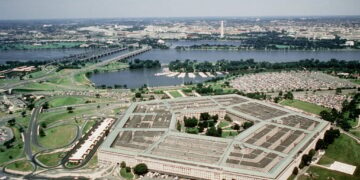
In the mediaBasing and force posture, Middle East, Military analysis
Featuring Jennifer Kavanagh
April 17, 2025

